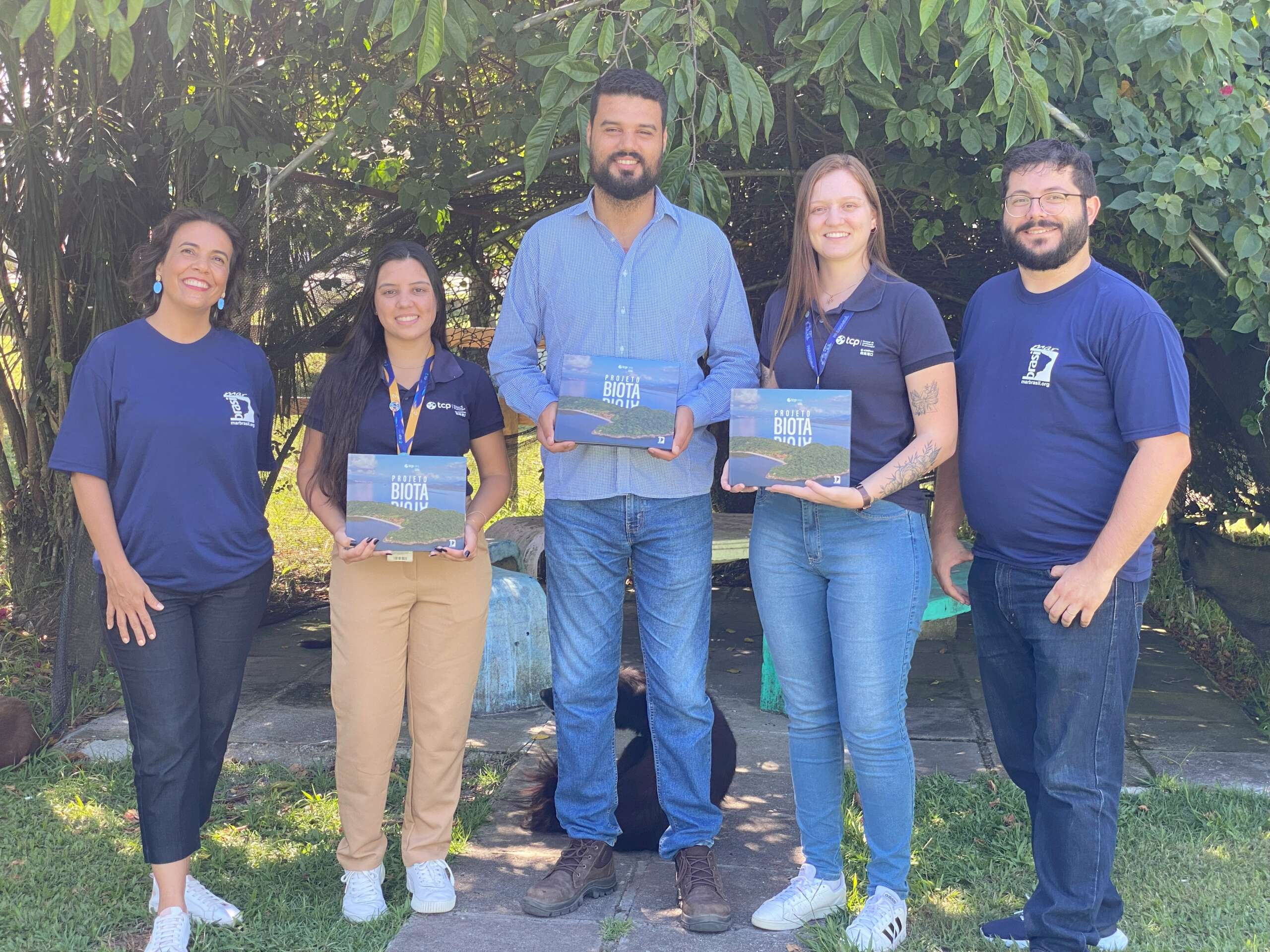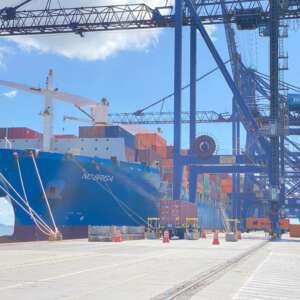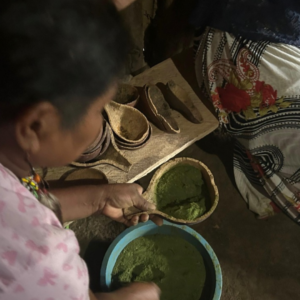The work is the result of a project carried out by the Terminal and the NGO MarBrasil, and provides data on the monitoring of aquatic fauna on the coast of Paraná.
On the afternoon of Thursday 8th, the company that manages the Paranaguá Container Terminal (TCP) took part in a ceremony to hand over 100 copies of the book “Biota”, the result of the project of the same name which aimed to identify the most important habitats for the conservation of marine species on the coast of Paraná. The event took place at the Paranaguá Department of the Environment (SEMMA), and was attended by representatives of the Terminal, municipal authorities and partner organizations.
“The donation of these books will contribute to the development of research and projects that will help preserve fauna and balance the ecosystem, benefiting marine life and maintaining the waters that belong to the entire population of Paranaguá,” explains Rafael Stein, TCP’s institutional, legal and regulatory manager.
The copies will be distributed to researchers, as well as to representatives of the Water and Land Institute (IAT), the Paranaguá Municipal Environment Department (SEMMA), the Chico Mendes Institute for Biodiversity Conservation (ICMBio), among others.
Supported by TCP as part of the environmental licensing for the expansion of the terminal, the Biota Project began in 2019 and was carried out by the NGO MarBrasil, in partnership with the Ecology and Conservation Laboratory (LEC) and the Geoprocessing and Environmental Studies Laboratory (LAGEAMB), both part of the Federal University of Paraná (UFPR). Its main focus was to identify areas of ecological importance for green turtles, grouper, manta rays and some species of sharks that live in the Paranaguá Estuary Complex.
The surveys on the behavior and occurrence of marine species were carried out along the coast of Paraná, including the regions of Ilha das Cobras, Ilha do Mel and Ilha das Peças. The results, presented in the book, will serve as a basis for building guidelines for future research, as well as providing support for the proposal of a marine ecological corridor on the coast of Paraná.
“One of the strengths of the project’s development was the formation of connections bringing together various civil society organizations and government institutions, strengthening more effective actions for maintaining the environmental quality of the territory and conserving marine biodiversity on the coast of Paraná,” says Angela Zaccaron, coordinator of the Biota Project.
The digital version of the book can be accessed at https://drive.google.com/file/d/17YU_nGX0eVkxf0SaaHFWflRoRw-MQrfU/view?usp=sharing.
Preserving marine life and the livelihoods of island communities
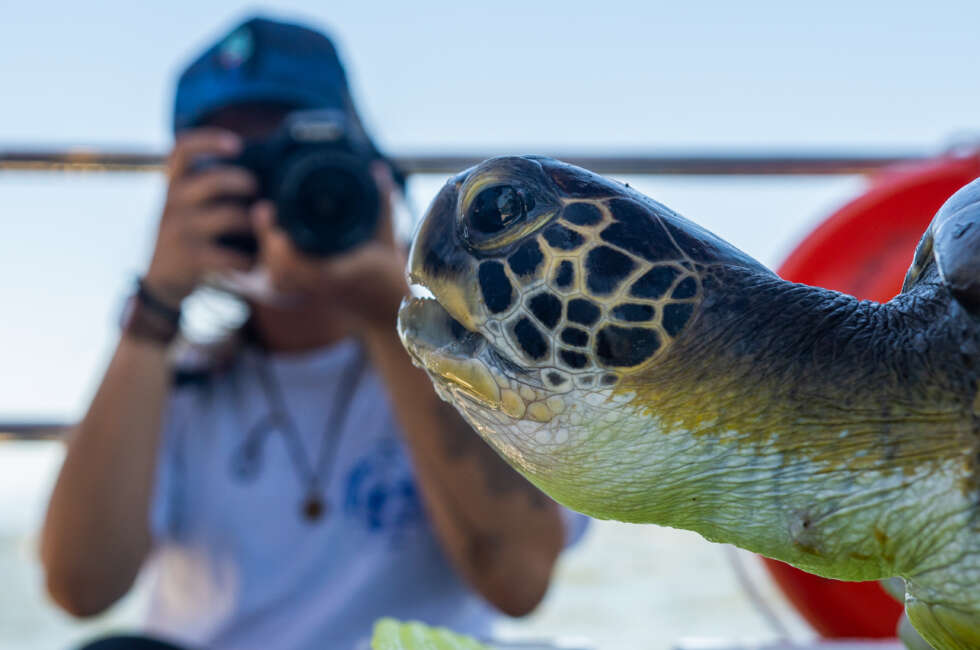
TCP works actively to protect the quality of the water in Paranaguá Bay, promoting the preservation of fauna and flora, and the economic activity of the communities that depend on the sea for their livelihoods.
For the preservation of marine life alone, TCP has already implemented 19 projects aimed at protecting wildlife, such as the “Dolphin, Turtle and Coastal Vegetation Monitoring Program”, the “Aquatic Biota and Bioindicators Monitoring Program”, among others.
In order to clean up the waters of Paranaguá Bay and promote environmental education, the Terminal has been running the Troca Solidária (Solidarity Exchange) program since 2015, which encourages island communities in the region to send recyclable waste to the program’s collection points, where the material can be exchanged for food, as well as cleaning and hygiene products at below market prices.
